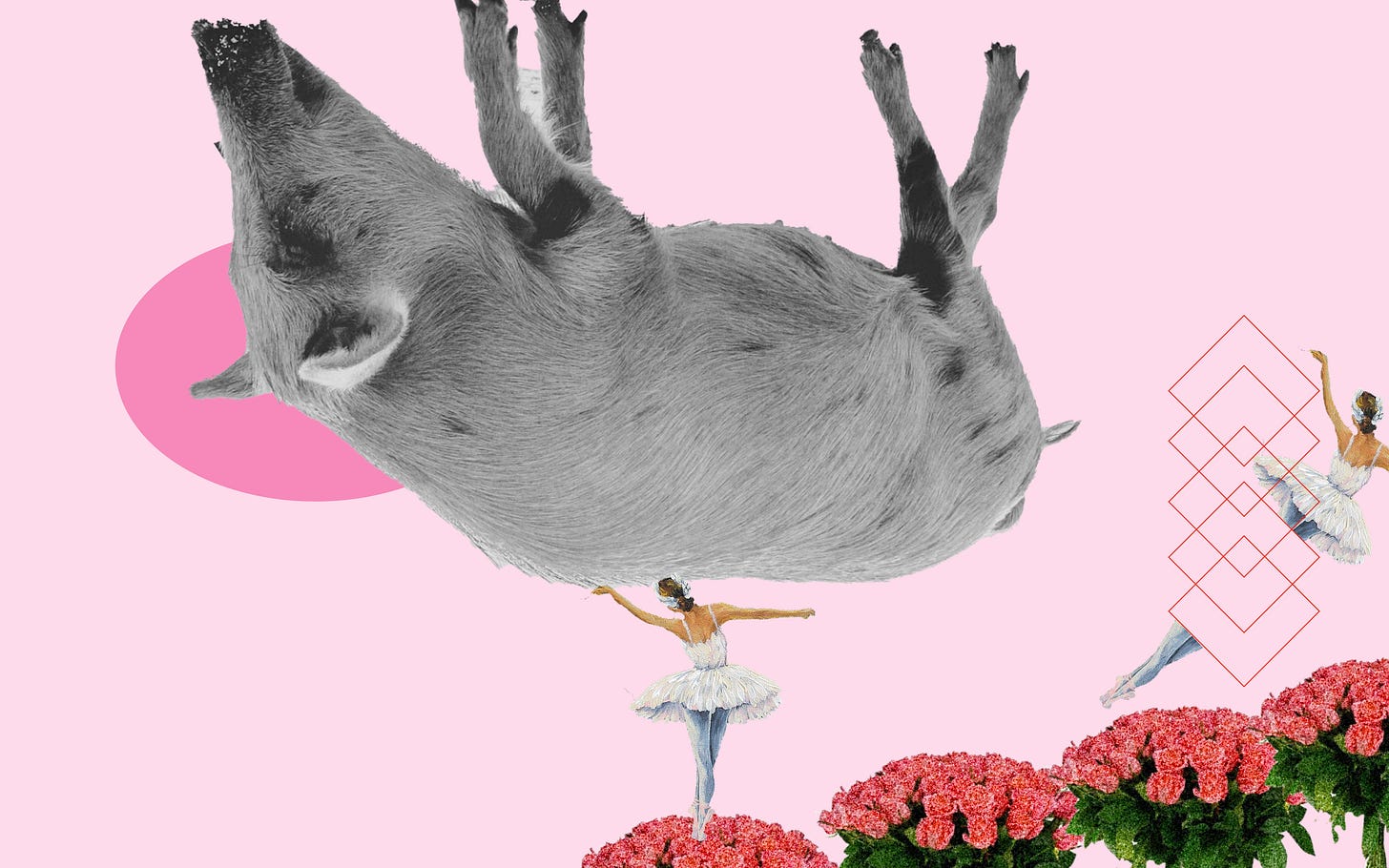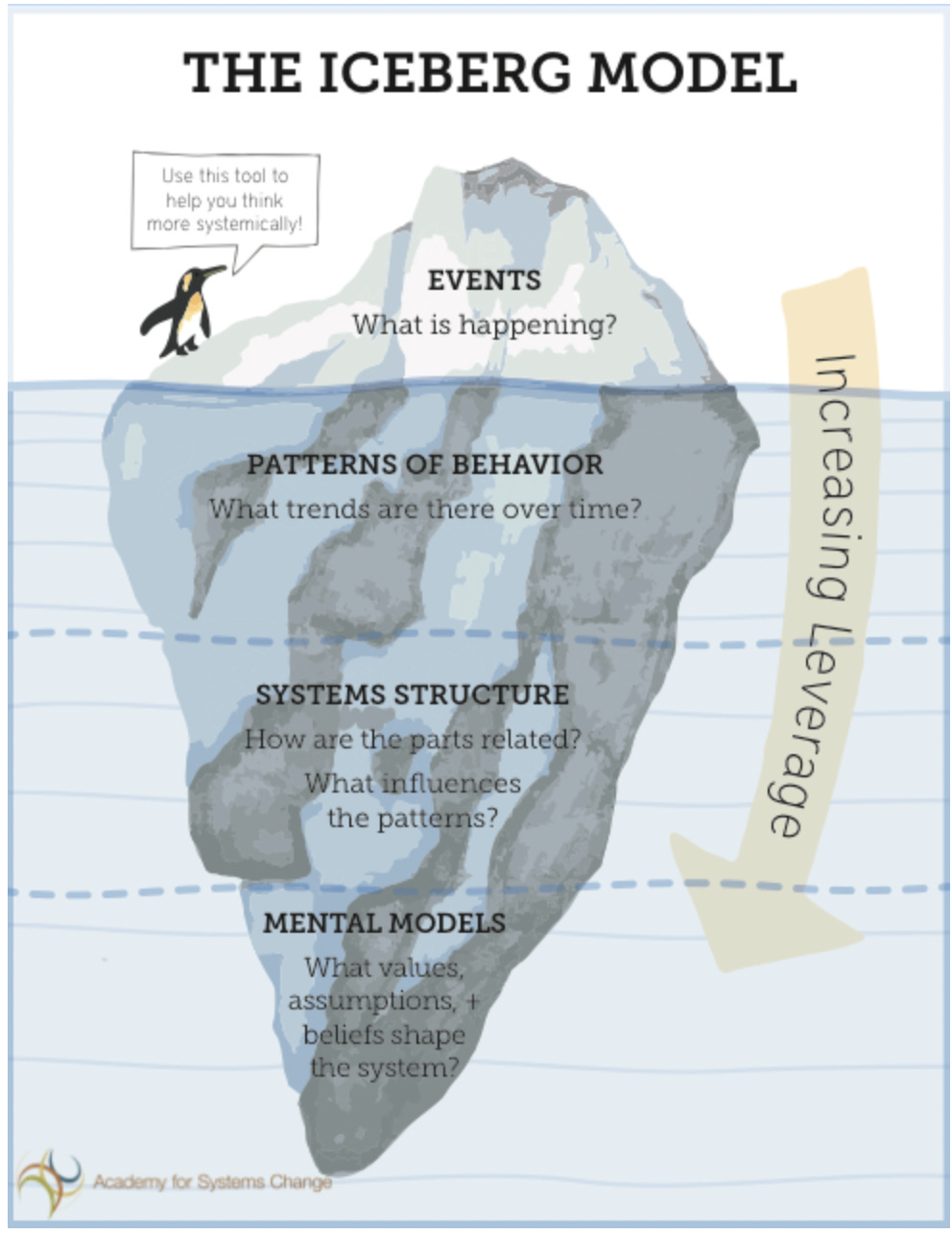Hello and welcome. Whether you’ve been here since the days of rewilding philosophy or are joining us for the first time, I’m thrilled you’re here.
As I said last week, changing the name from rewilding philosophy to wild:health isn’t a rebrand - it feels more like a homecoming. It already feels so natural that I can hardly recall the moment it didn’t exist. I don’t want this shift to be a fresh start. I see it more as a deepening, a sharpening of focus: philosophy as a compass for nurturing both our inner worlds and the living planet we call home, our ecos.
So what won’t change: The heart of this work. I’ll still wander the edges where philosophy meets science, where the self entangles with the whole. I’ll still ask the questions that matter.
Today’s essay picks up a thread I began weaving weeks ago - in a way, it’s a conversation about what it means to “think like an ecosystem” . If you’re new here, don’t worry: We’re meeting in the messy middle. This is where the best conversations live anyway.
I’d say we’re all helping each other heal.
Many of us - especially those working on regeneration, sustainability, and social or ecological improvements - are contributing to this healing process. We do it on multiple levels: personal, collective, and planetary.
As someone who’s actively sought healing and wanted to explicitly contribute to it, I’ve struggled to choose which “medicine” to offer the world. Homeopathy, functional medicine, and herbal therapy intrigued me as much as psychedelics, hypnotherapy, or yoga. Whenever one approach captivated me, another tempted me. The same applied to collective and planetary healing - participatory processes, regenerative agriculture, water sanitation, rewilding projects - all vied for my focus.
Because I couldn’t settle on a single path, I began searching for a root cause behind the ailments we see across scales.
Until I noticed that the idea of a root cause is itself a root cause - namely a linear way of thinking that assumes that every outcome can be traced back to a specific cause. Yet, what I found was that the causes (for my own health issues as well as for the planet’s) can’t be neatly traced. It wasn’t just a past trauma, infant formula at three months old, or chemicals seeping into my body. Nor was it solely Big Pharma, Big Oil, or industrial greed causing species to go extinct, corals to bleach and permafrosts to melt. At the same time, it obviously was all of that.
If we can’t find the root cause, so my thinking, we can’t find a treatment. Instead of quick fixes like solar panels, I wanted to address deep underlying patterns.
Though, what I found is that my root is going to be different from your root.
The roots of each tree are different, the soil, the mycelium, everything that is hidden from plain sight is always differing, forever changing.
In systems terms, we talk less about roots and more about the hidden layers of an iceberg, as Donella Meadows famously pointed out. The iceberg though is single static, frozen lump of water and unless threatened by global warming, timeless.
Many people I know (myself included) are interested in finding roots while at the same time what they are doing is not to look for the roots and all they are embedded in, but to what’s underneath the iceberg.
What we find underneath the iceberg are singular root causes. For some, it’s fossil fuels; they devote themselves to renewables. For others, it’s mindset; they work to shift consciousness. A chronic illness might be trauma, diet, or toxins.
Those healed by a remedy often share it as universal medicine.
But what heals you may not heal me.
All of that is not a flaw in our design. It’s the very design of what it means to be human itself.
That things work only in very singularized moments is not a problem to be solved.
So, instead of chasing root causes (and their illusory solutions as I have talked about here and here), we can go meta, as they say.
What do I mean by that?
Meta-Healing
Meta-healing means focusing not on causes or fixes, but on the processes we use to identify them.
In German we say “Der Weg ist das Ziel” (“The path is the goal”).
No doctor, politician, or billionaire will map our path - personal, collective, or planetary.
The path to healing is the destination itself. It’s a spiritual practice of finding out ourselves.
Root causes are the flip side of solutions.
Our human condition isn’t to solve problems or trace roots - it’s the search itself.
“I do not seek, I find. It is a risk, a holy adventure. The uncertainty of such ventures can only be taken on by those, who feel safe in insecurity, who are lead in uncertainty, in guidelessness, who let themselves be drawn by the target and do not define the target themselves.” Pablo Picasso
The search is the find.
Reality is not a static collection of things but a dynamic unfolding of relations. Alfred North Whitehead, the mathematician-philosopher, argued that even the most solid-seeming objects are actually “societies of occasions,” temporary gatherings of process. Nothing exists in isolation; everything is a verb masquerading as a noun.
Just as solutions, root causes are masquerading.
The Western obsession with root causes is a hangover from Newtonian mechanics and Cartesian dualism - the idea that the universe operates like a clockwork machine, reducible to separable parts and linear chains of cause-and-effect.
But living systems defy this logic.
As Nora Bateson writes
“The parts cannot be studied separately from the relationships that generate them.”
A forest is not merely trees plus fungi plus rainfall; it is the relation between them. A body is not organs plus trauma plus nutrients; it is the ongoing conversation between mitochondria, memories, and microplastics.
And when I say Western obsession, I have to admit, that this was and to some degree still is, my obsession. My PhD’s rational centered on “deep leverage points,” using Meadows’ iceberg model to justify focusing on relational philosophies. I craved that validation (that you can only get from the analysis of cause-and-effect) to justify that my work mattered - that this was THE medicine.
And while it may feel like my medicine, that doesn’t mean that it is yours.
Wait, there are others?
Another thing to consider is that root causes, and the idea that we can find them, presupposes that we can actually do something about them.
While I believe in human agency, it’s arrogant to assume exclusivity. Just consider the agency that a virus has(d) on this world.
Agency isn’t exclusive to humans. Toxic chemicals, ancestral traumas, and capitalist supply chains aren’t passive factors in a system - they’re active participants in a co-emergent drama. Jane Bennett, in Vibrant Matter, calls this the “force of things.”
The cause of ecological collapse isn’t just Big Oil; it’s the entanglement of desire, fossilized sunlight, and the myth of progress.
A Koan of Causality
To sit with this complexity is to confront a paradox: “Everything is causal, yet nothing is the cause”. This is not a new insight. Buddhist philosophy has long spoken of pratītyasamutpāda - dependent origination - the truth that all phenomena arise together in a web of mutual conditioning. A flame isn’t caused by the match, the oxygen, or the dry tinder; it is the relational unfolding of all three.
This is why the search for a root cause is itself a kind of violence. It flattens the living, breathing process into a tidy story of villains and saviors. Instead of that, we can also acknowledge that each one carries a different medicine that we contribute to the whole.
Some of that medicine won’t do a thing for us, while it will help someone else immensely.
And if there is no root, then healing cannot be a matter of extraction or eradication. It becomes an act of re-patterning - of tending to the quality of relations.
This is not a call to abandon solar panels or even SDGs (as much as I critique them). I rather see it as an invitation, to see them not as fixes but as gestures in a larger improvisation. Linear thinking clings to silver bullets because it fears the dark richness of the soil - the rot, the mycelium, the unresolved. But as adrienne maree brown writes
“There is a conversation in the soil that we must learn to hear.”
Healing, in this light, is less about solving than “solving-for-now”. It’s composting the past into possibility. It’s recognizing that our work - whether planting a pollinator garden or sitting in a grief circle is not about saving the world but joining it.
So I no longer ask, “What’s the medicine?” I ask, “How can I be medicinal for the moment I am in?” Or in even stranger words “How can I be medicine-ing the moment?” Because the web has no weaver - only countless hands, tentacles, and hyphae, mending as they go.
If you think someone you know might benefit from reading this, please share.






Do you also have the idea that your writing is on the right track when you see the abstracter/deeper patterns/dynamics within are returning? Or to say differently, that the articles from one's hand could easily reference one another. As they where from the same family so to speak. As they create an entangled web of insights. And that it is this whole that wants to be communicated. As walking streets through an unknown city to get to know the city.
Good luck with the "rebrand", curious how it will direct/guide future writing.
Thank you for writing this, I love what you're weaving.
There are two people whose works came strongly to mind while reading this, and I'm curious whether or not they've been present in your journey so far. First is Joanna Macy, specifically her dissertation Mutual Causality in Buddhism and General Systems Theory, and the other is Stephen Harrod Buhner, specifically thinking about some ideas he shared in this For the Wild interview nearly a decade ago which really shaped my relationship with the microbiota of this planet. Here's part two which I recall is where he really gets into it–
https://forthewild.world/listen/stephen-harrod-buhner-on-plant-intelligence-and-the-imaginal-realm-part-2
Again, I so deeply love and appreciate what you're weaving together here, and I look forward to reading and hearing more! And if you're able to join me next week in the Living World Salon, it would be beautiful to weave together some of these ideas in realtime!